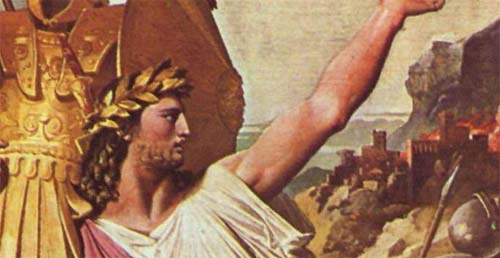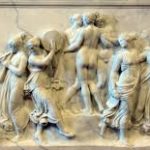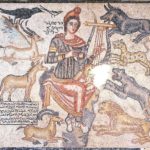Ancient Rome Kings:
Romulus
The legendary king of ancient Rome was Romulus (753 BC-716 BC). He was the founder of the city of Rome, which was built upon the Palatine Hill. He removed all class barriers and allowed the people of Rome to come together as a whole, without any discrimination into slaves and freemen.
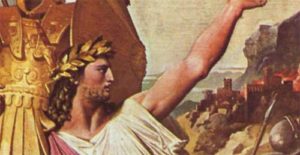
He is popular for the mishap known as The Rape of the Sabine Women, in which he invited the neighboring tribes for a festival in Rome and abducted the young women of Sabine.
A war between Rome and Sabine ensued which resulted in the common kingship of Romulus and Titus Tatius. Besides war with the Sabines, Romulus waged ancillary wars against Fidenates and Veientes. An important contribution of Romulus to ancient Roman Empire was a systematic categorization of the Roman Senate inclusive of voting units. He died at the age of 54 and was worshipped as the war god Quirinus.
Numa Pompilius
After the death of Romulus, there was a one-year period of interregnum in ancient Rome. Numa Pompilius was elected by the Senate as Romulus’ successor on account of his reputation as an advocate of peace and justice. During his reign, Numa Pompilius (715 BC-674 BC) brought about myriad religious reforms.
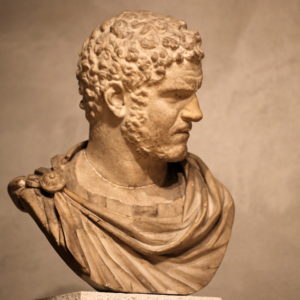
Facts about Rome Kings
This Roman king aimed at making the Roman natives less bellicose by promoting and propagating his ideas by means of religious processions and sacrifices. He succeeded in making peace with the neighboring cities and tribes of Rome.
He constructed a temple to Janus. The doors of this temple were open in times of war and closed in peaceful times. An interesting point to note is that during 43 years of Numa’s reign, the doors of this temple were closed.
He even distributed the land captured by Romulus among the poor citizens of Rome, which is indicative of his peace-loving reforms. He reformed the Roman calendar by adding the months of January and February in order to bring the total number of months to twelve.
Tullus Hostilius
The third king of ancient Rome was Tullus Hostilius (673 BC-642 BC). Unlike Numa, Tullus taught his subjects the art of war. He waged war against the city of Alba Longa, completely destroying it. Tullus constructed a new home for the Roman Senate, the Curia Hostilia.
During his life, Tullus neglected the worship of gods, until later in life when he fell ill. He then called upon Jupiter and implored for his assistance, but Jupiter killed him and burned his house with a flash of lightning. His reign was for a period of 31 years.
Ancus Marcius
Ensuring the inexplicable death of Tullus, the people of ancient Rome elected Numa’s grandson, Ancus Marcius (642 BC-617 BC) as their pristine king. He was a peace-loving and religious man, who did very little to expand the boundaries of Rome, and only defended his territory when there was a threat by other tribes.
He constructed Rome’s first prison on the Capitoline Hill. He was a great bridge builder. He built the first bridge across Tiber River.
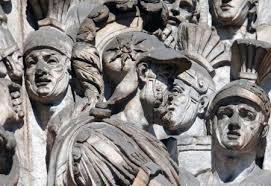
He established the first salt works of ancient Rome and founded the port of Ostia on the Tyrrhenian Sea. Though he had no expansionist policy he used diplomatic and peaceful methods to enter into alliances with the neighboring cities of Rome.
He relocated the Latins to the Aventine Hill, resulting in the formation of the Plebeian class of Roman society. He ruled for 25 years and died a natural death, thus marking the end of the Sabine Rome Kings.
